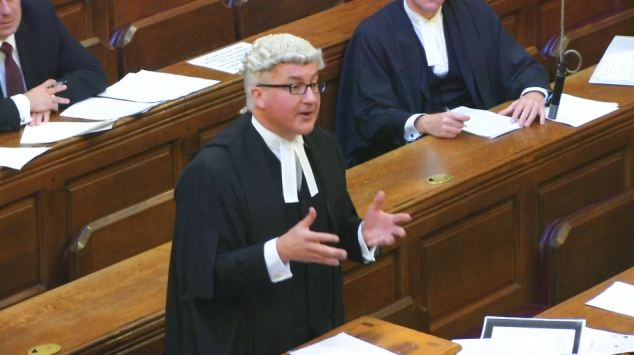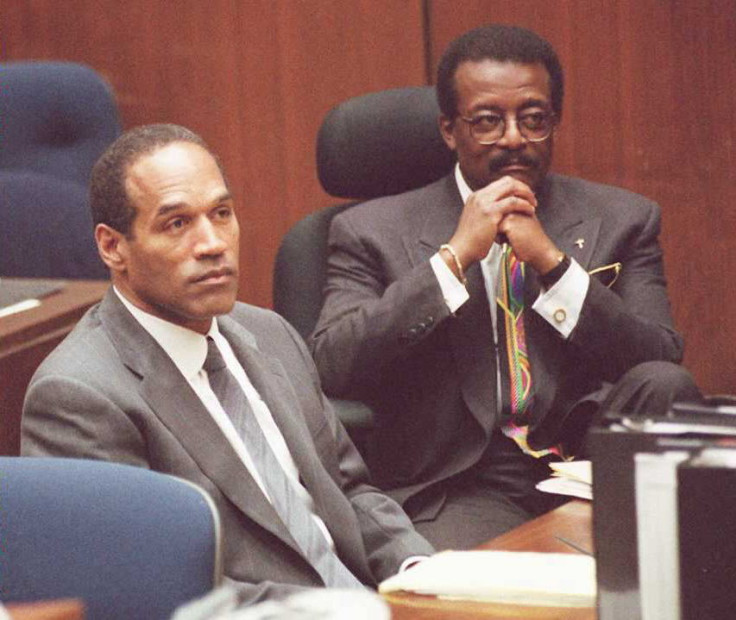UK should not broadcast trials in same way as Oscar Pistorious and OJ Simpson cases
Government is conducting pilot into whether judges sentencing remarks should be televised.
The UK should not broadcast high profile court cases in the same way the Oscar Pistorious and OJ Simpson trials were, a legal expert has said. The government has allowed cameras to film judges' sentences of some of the country's most notorious cases for a pilot that could see them installed into crown courts.
The test is taking place in the Central Criminal Court (commonly known as the Old Bailey) Southwark Crown Court and Manchester Crown Square as well as other cities and films only the judge.
One of the test cases was that of Muhiddin Mire, the 30-year-old Somali man who was found guilty on Monday (1 August) of the attempted murder of 56-year-old Lyle Zimmerman in a frienzied knife attack at Leytonstone tube station in east London in December 2015.
The Ministry of Justice hopes cameras will lead to more "openness and transparency" as to what happens in our courts after the Supreme Court and Court of Appeal allowed broadcasters in in 2013.
Gus Sellitto, legal and communications specialist at Byfield Consultancy, told IBTimes UK while the move was a step in the right direction there were still concerns about how proceedings would be portrayed.
"I think there is almost a mystique in terms of the UK court system and that is because of a public mistrust of the legal system and the way it works," Sellitto explained. "Judges can be seen as out of touch with modern Britain and I think the pilot is a way of fostering more openness. My view is that this is a baby steps approach to opening the system to public view away from criticism of it being inaccessible and the cuts to legal funding. Entire criminal cases are not being televised and at the moment this is a pilot.
"This is a sensible way of opening the system to the public and showing it that, apart from mistrust and under funding, the UK is still pretty much top of the tree. We still have a legal system that is world renowned."

The government scheme records judges' sentencing remarks, which summarise the case before a punishment is handed down. The comments usually last a matter of minutes depending on the seriousness and complexity of the crime but critics argue even this runs risk of sensationalising proceedings.
Sellitto said broadcasters had a responsibility to explain the case and not just the dramatic finale. "I think that [sensationalising] is something we need to be mindful of with the 24 hour news cycle and social media.

"We need to be careful of how many high profile cases [are broadcast] and mindful of how that will affect the administration of justice and how cases are televised will be key. You've seen with the Oscar Pistorious case and we saw with the infamous OJ Simpson trial that courts are becoming like a film scenes, it is almost sensationalism.
"Broadly, I think we tend to have a conservative approach to justice here in the UK. It is steeped in tradition. You only need to look at the court regalia and wigs to see we are starting from a historical stand point.
"That is why I think it is important, if the plans go ahead, for broadcasters to show context. We are a long way from having defendants and witnesses filmed but there are huge concerns over that and the affect it could have [on testimony.]" There are no plans to introduce cameras into civil court where celebrities have used the law to defend their privacy. Even if they were, the cat is more often than not already out of the bag and Sellitto believes prying lenses would not make much difference.
"You only have to look at the case of the injunction involving PJS to see these cases are already played out in public more and more," he said. "Cameras would not protect their privacy in any way and all they would mean is that you are seeing the people involved."

© Copyright IBTimes 2025. All rights reserved.






















